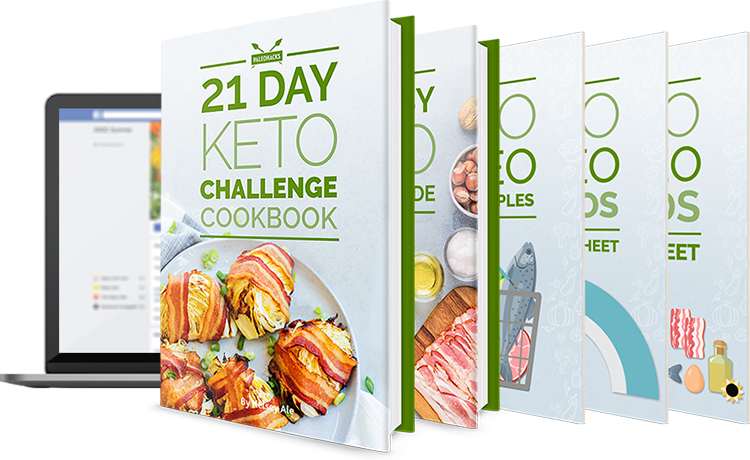Your body requires energy to function at an optimal level and endure day-to-day stresses. Unfortunately, some foods rich in carbohydrates are digested very fast which can produce excessive calories and cause weight issues. So, to keep your body healthy and your weight in check, a ketogenic diet could be a good option to consider.
Keto diets are low-carb meals that allow your body to acquire calories primarily from proteins and fats. They require more energy to burn during digestion, so no surplus is stored in the body.
What Can You Eat on A Ketogenic Diet?
While on a ketogenic diet meal plan, it is crucial to ensure that one eats within the restrictions of the diet. The amazing benefit is that these foods are also delicious, natural whole foods that are very healthy for you. These are:
Fats and oil

Increased healthy fat/oil consumption is the primary focus of the ketogenic diet. They can come in as part of the cooking process, snacks, or toppings. They include butter, lard, cocoa butter, oils from palm and coconut. Some healthy unsaturated fats such as almonds, flax seeds, walnuts, chia seeds, and pumpkin seeds are also allowed on the diet plan.
Proteins

On a Ketogenic diet, protein should be taken moderately because our body converts excess protein into sugar, which can result in weight gain. You can take any type of meat– Beef, lamp, goat, veal, venison, chicken, turkey, or pork. You should also look out for omega-3 or pastured eggs as well as fatty fish (trout and salmon).
Fruits and veggies

Fruits and veggies are the primary source of carbohydrate on a ketogenic diet, and should be taken in moderation. When buying fruits, try going for blackberries, avocados, lemons, and raspberries. Veggies should be restricted to broccoli, leafy greens, garlic, cucumber, asparagus, cauliflower, and summer squashes.
How Does Ketogenic Diet Work?
Ketogenic diet is a low carbohydrate, high-fat and protein diet that offers loads of health benefits. With this meal plan, your body gets more calories from fat and protein than from carbohydrates, which are easily digested. Pastries, soda, sugar, and white bread are just a few carbohydrates-rich foods that should be avoided to keep yourself fit and improve your overall health.
By limiting intake of carbohydrates, your body maintains your blood sugars at low, healthy levels. And instead of relying on sugar for energy, a Keto diet encourages the body to break down fat into ketones in a process known as ketosis. The ketones are used as an alternative type of body fuel.
What Are The Benefits Of Ketogenic Diet?

Keto diet comes with a variety of health benefits, including:
Aids in weight loss
By reducing the high level of carbs in your diet that produce sugar, a ketogenic diet plan tells your body to burn stored fat into energy leading to weight loss.
Reduces acne
Refined and processed carbs can alter gut bacteria and cause dramatic blood sugar fluctuations, which affects your skin health. Therefore, a Keto diet can reduce some cases of acne because of its lower carb intake.
Improves heart health
Keto diet enhances your heart health by lowering cholesterol levels. It can increase “good” HDL cholesterol levels significantly while reducing “bad” LDL levels.
Protects brain functioning
Keto diet is considered to have neuroprotective benefits that can help prevent or treat conditions such as Alzheimer’s, sleep disorders, and Parkinson’s. Also, children under a Ketogenic diet have shown better cognitive function levels and alertness.
Potentially eases seizures
Ketosis elevates the level of ketone bodies in the blood. That can result in a reduction of seizures for people with epilepsy.
Side Effects and How to Minimize Them

Due to the elimination of carbs, you may experience different side effects as the body adapts. That is usually known as the ‘Keto flu’ and generally spreads over a few days. The symptoms are:
Poor energy and mental function
The body and brain’s preferred and primary energy source is glucose. Low-carbs diet can cause increased hunger, constipation (due to low fibrous foods), mood swings, and fuzziness.
To minimize that, try a regular low-carbohydrate diet for the first few weeks. That will train the body to burn more fat before you eliminate carbs completely.
Nutrient deficiency
If you are not consuming a wide variety of fruits, veggies, and grains, you might be at risk for micronutrients deficiencies. That could include minerals like phosphorus, magnesium, selenium, and vitamin B and C.
Try consuming 1000 mg of potassium, 300 mg of magnesium, and 3,000-4,000 mg of sodium to minimize the side effect.
Conclusion
You can reap numerous health benefits from a keto meal plan. It entails a wide variety of nutritious, versatile, and tasty foods that would help you to remain within your daily required carb range. So, if you are seeking to jump start your health and fitness goals, consider the Ketogenic diet for a change.
Want to know the difference between the Keto Diet and Paleo Diet? Read more at “Paleo Diet vs Ketogenic: Which one should i choose?”
Get Started With a Keto Diet!
- An eight-week meal plan created based on the expertise of certified nutritionists, personal trainers, and chefs.
- Meals with calorie and macronutrient content tailored to specific situation and goals.
- A nutrition plan with food variety.
- Meals are based on personal food preferences
- Detailed recipes with step-by-step instructions
- A downloadable shopping list each week
- Options on how to customize every meal
- Eating plan every day to reach your goals in the fastest and most enjoyable way.






